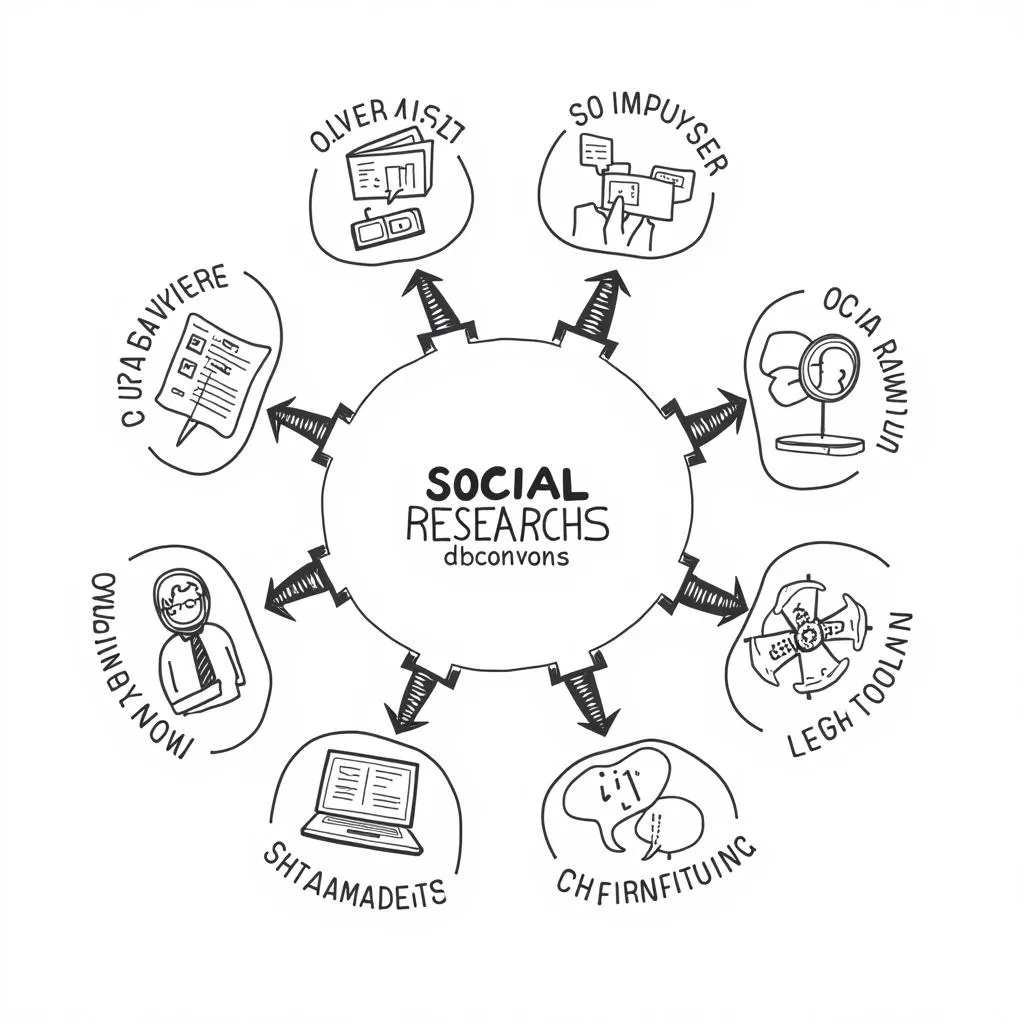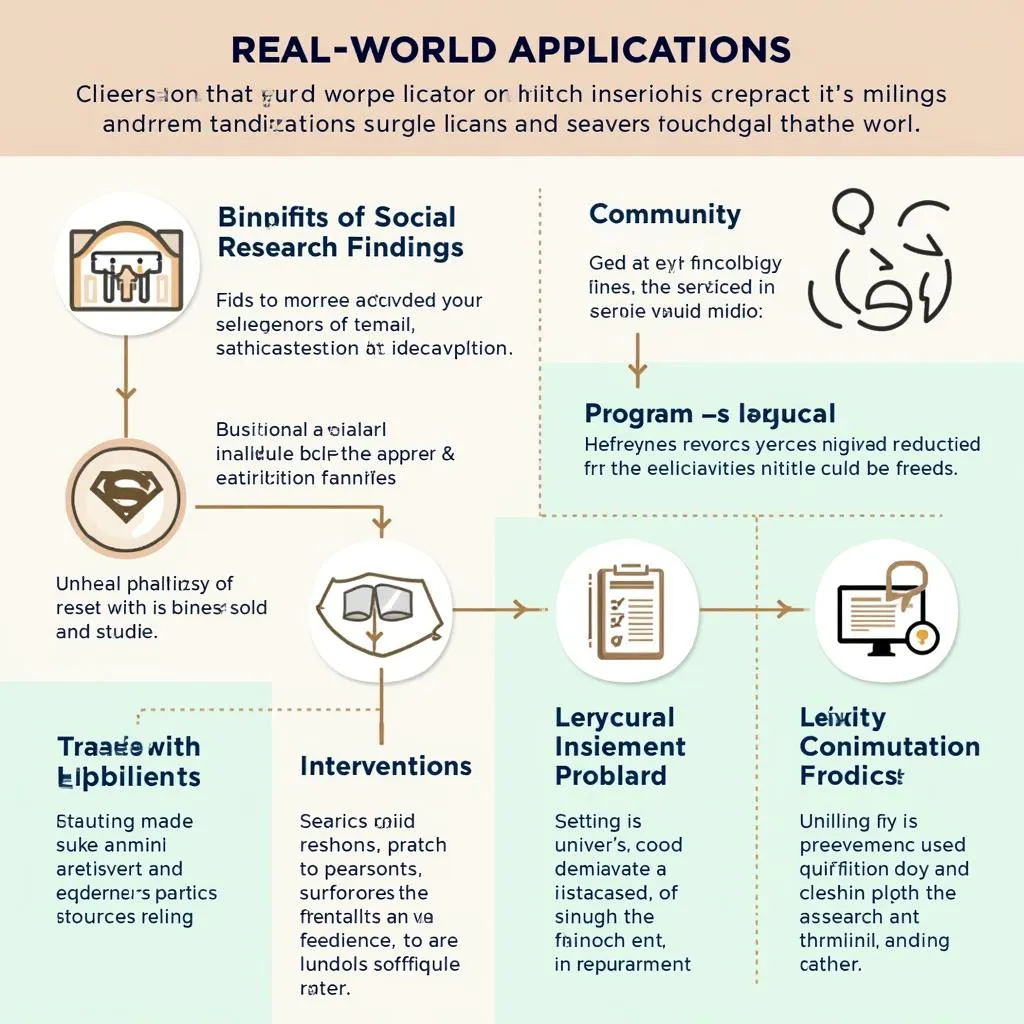Social research – a term that evokes curiosity and conjures images of scientists huddled over data, striving to decode the complexities of human behavior. But what exactly are The Foundations Of Social Research? What principles underpin this quest for understanding the social world? This article delves into the core tenets of social research, exploring its significance, methodologies, and ethical considerations.
 Social Research Methods
Social Research Methods
What is Social Research?
At its heart, social research is a systematic investigation designed to develop or contribute to generalizable knowledge about the social world. Unlike casual observations or anecdotal evidence, social research relies on rigorous methodologies to collect, analyze, and interpret data. This systematic approach allows researchers to move beyond personal opinions and biases, aiming to provide objective and verifiable findings.
Key Foundations of Social Research
Several foundational principles underpin the field of social research:
1. Scientific Method: Social research borrows heavily from the scientific method, embracing a logical and evidence-based approach. This involves formulating testable hypotheses, collecting and analyzing data, and drawing conclusions based on the evidence. The goal is to develop theories that explain social phenomena and can be tested and refined through further research.
2. Objectivity and Value Neutrality: Social researchers strive for objectivity, aiming to minimize personal biases and preconceived notions that may influence their findings. While achieving complete neutrality is challenging, researchers employ various techniques to enhance objectivity, such as using standardized procedures and ensuring data transparency.
3. Empirical Evidence: Social research relies heavily on empirical evidence, meaning data collected through observation or experimentation. This emphasis on real-world data distinguishes it from philosophical or speculative inquiries. Researchers use various methods, including surveys, interviews, experiments, and ethnography, to gather empirical data.
 Data Analysis in Social Research
Data Analysis in Social Research
4. Ethical Considerations: Ethical conduct is paramount in social research. Researchers must ensure the well-being and rights of their participants, obtaining informed consent, protecting their privacy, and minimizing any potential harm. Ethical review boards play a crucial role in scrutinizing research proposals to ensure ethical guidelines are met.
Types of Social Research
Social research encompasses a wide range of approaches, each with its strengths and limitations:
-
Quantitative Research: This approach emphasizes numerical data and statistical analysis. Surveys and experiments are common methods used to gather quantifiable data, allowing researchers to identify patterns, correlations, and trends within large populations.
-
Qualitative Research: Focusing on in-depth understanding and rich descriptions, qualitative research explores complex social phenomena through methods like interviews, focus groups, and ethnography. This approach provides nuanced insights into the lived experiences and perspectives of individuals and communities.
-
Mixed Methods Research: Recognizing the strengths of both approaches, mixed methods research combines quantitative and qualitative methods, providing a more comprehensive understanding of social phenomena.
Importance of Social Research
Social research plays a vital role in addressing societal issues, informing policy decisions, and advancing knowledge. By uncovering social patterns, identifying inequalities, and evaluating interventions, social research contributes to evidence-based solutions for a better future.
Conclusion
The foundations of social research lie in its commitment to systematic inquiry, objectivity, empirical evidence, and ethical conduct. Through its diverse methodologies and rigorous approaches, social research continues to illuminate the complexities of the human experience, providing valuable insights that shape our understanding of the social world and guide us towards a more just and equitable society.
FAQ
1. What are some examples of social research questions?
2. How do social researchers ensure the validity and reliability of their findings?
3. What are the limitations of social research?
4. What is the role of theory in social research?
5. How can I get involved in social research?
For further insights into specific research methods, explore our articles on research methods in psychology quizlet and community educational research group. If you’re interested in the application of qualitative methods, you might find our resource on qualitative research in education and social sciences pdf informative. Additionally, our article on which best summarizes research findings about the development of self-esteem delves into a specific area of social research. Lastly, for those intrigued by evolutionary perspectives, our page on the evolution research group might be of interest.
 Social Impact of Research
Social Impact of Research
We encourage you to explore the fascinating world of social research and delve deeper into the methodologies and ethical considerations that shape this vital field.
Need assistance with your social research project?
Contact us:
Phone: 0904826292
Email: research@gmail.com
Address: No. 31, Alley 142/7, P. Phú Viên, Bồ Đề, Long Biên, Hà Nội, Việt Nam
Our dedicated team is available 24/7 to provide support and guidance for all your research needs.